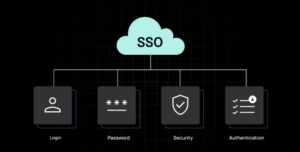
Signs your case will be dismissed are often present long before a judge officially makes a ruling. Whether you are the plaintiff or the defendant, understanding these signs can give you peace of mind or help you prepare better. From lack of evidence to procedural errors, many legal missteps can lead to a case being thrown out. This article delves into the most common indicators that suggest your case might not proceed to trial, equipping you with the knowledge to stay one step ahead.
Let’s explore the top five signs your case will be dismissed, each supported by legal reasoning and real-world application. Whether you’re involved in a criminal, civil, or family law case, knowing what to expect can be invaluable.
Insufficient Evidence
One of the most telling signs your case will be dismissed is a lack of sufficient evidence. In criminal and civil cases alike, the burden of proof is a critical standard. If the prosecution or plaintiff cannot present credible, concrete evidence to support their claim, the judge may dismiss the case altogether. The absence of key witnesses, missing documents, or contradictory statements can seriously undermine a case.
Judges are bound to uphold the principles of fairness and justice. If it’s clear that the case relies heavily on speculation or assumptions, it may not even make it to trial. For example, in criminal cases, if the police arrest someone without probable cause or gather evidence without a warrant, the defense can file a motion to dismiss due to constitutional violations.
Procedural Errors
Procedural missteps can be another strong sign your case will be dismissed. The legal system follows strict protocols, and failure to adhere to these can invalidate the entire case. Examples include improper filing of court documents, missed deadlines, or failure to serve the opposing party within the required time frame.
Judges take court procedures very seriously. If a case is not filed correctly or is submitted past a statute of limitations, it could be dismissed with prejudice, meaning it cannot be refiled. Even something as simple as formatting errors or an incorrect venue could put your case in jeopardy.
Lack of Jurisdiction
If the court doesn’t have the legal authority to hear your case, that’s a major sign your case will be dismissed. Jurisdiction refers to a court’s power to rule on a matter, and without it, the case cannot proceed. This issue commonly arises in cases where the dispute crosses state lines or involves federal versus state matters.
There are two types of jurisdiction: subject matter jurisdiction and personal jurisdiction. If a case is filed in a court that lacks either type, a dismissal is likely. For instance, a small claims court cannot preside over a multi-million-dollar lawsuit, and a state court may not have the authority to rule on a matter governed by federal law.
Violation of Constitutional Rights
Another compelling sign your case will be dismissed is when a party’s constitutional rights are violated. In criminal cases, for example, if a suspect was not read their Miranda rights or was subjected to an unlawful search and seizure, any evidence obtained may be inadmissible. Without this key evidence, the entire case can collapse.
This is also true in civil cases where one party’s rights to due process are not respected. If a defendant was not given proper notice of a lawsuit or was denied the opportunity to present a defense, the court may find the process invalid and dismiss the case to preserve justice and fairness.
Settlements or Withdrawal by Plaintiff
Often overlooked, voluntary actions like settlements or a plaintiff withdrawing the case are additional signs your case will be dismissed. In many civil disputes, the parties may come to an agreement outside of court, leading to a motion for dismissal by mutual consent.
Similarly, signs your case will be dismissed if a plaintiff realizes their chances of winning are slim, they may choose to withdraw the case altogether. This typically results in a dismissal without prejudice, meaning the case can be refiled if circumstances change. These dismissals are less about legal shortcomings and more about strategic decisions by the involved parties.
Conclusion
Understanding the signs your case will be dismissed can help you manage expectations and take proactive steps. Whether it’s due to insufficient evidence, procedural issues, or jurisdictional problems, recognizing these signs early can save time, money, and emotional energy. If you suspect your case may be in danger of dismissal, consult with a legal professional immediately to explore your options and ensure your rights are protected.
Frequently Asked Questions (FAQs)
- What does it mean when a case is dismissed? A dismissal means the court has decided to terminate the case without a trial or final judgment.
- Can a dismissed case be reopened? It depends on whether the dismissal was with or without prejudice. Without prejudice means it can be refiled.
- Why is insufficient evidence a reason for dismissal? Courts require credible evidence to proceed. If there’s not enough, the case cannot be proven.
- What are procedural errors in court? These are mistakes in how the case is filed or handled, such as missed deadlines or incorrect documentation.
- What is jurisdiction and why is it important? Jurisdiction is a court’s legal authority to hear a case. Without it, any ruling would be invalid.
- Can my case be dismissed for missed deadlines? Yes, failing to meet legal deadlines can lead to an automatic dismissal.
- What happens if my rights are violated during a case? Any violation, such as unlawful evidence collection, can result in dismissal.
- How do I know if my case is weak? A lawyer can help evaluate the strength of your case based on evidence and legal standards.
- Can both civil and criminal cases be dismissed? Yes, both types of cases can be dismissed for various legal and procedural reasons.
- What should I do if I think my case might be dismissed? Speak to an attorney right away to review your case and potentially fix any issues before it’s too late.







